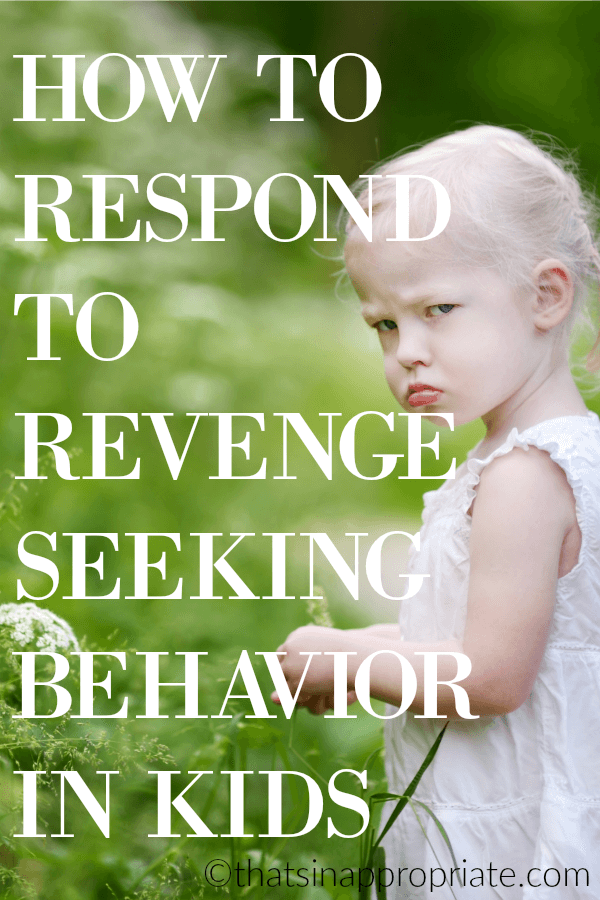I could see the look of fury in her eyes as her arm wound up and she launched the red block straight at my face. She wanted revenge.
I wanted to yell.
I wanted to throw her across the room.
I wanted to pick her up and put her in the corner in time-out. “How dare she do this!”, I thought.
But I didn’t.
I didn’t do any of those things I desperately wanted to do in the heat of the moment.
All I could think about was that she wants to hurt me because she’s hurting so much she can’t stand it.
Revenge.
When I talk to parents about revenge as one of the underlying reasons for misbehavior, they have some interesting reactions.

Often, they vehemently reject the idea that their child could possibly be acting out in revenge.
They can usually get their heads around attention-seeking behavior.
They can easily get their heads around power control issues.
But the idea of revenge seems so evil in a way, so calculated, like some sinister plot they can’t imagine their two year old, three year old, or four year old, ever being capable of.
Revenge isn’t that, or at least it doesn’t have to be. Two year olds can misbehave in revenge. Truthfully, any child at any age can act out in revenge.
When you look at revenge for what it is at its core, it’s “I’m hurting, and I want you to hurt as much as I hurt.”
Revenge is not evil or sinister.
Revenge is hurt, expressing itself.
So when my daughter threw her block at me, and I felt my rage rising, I remembered that retaliating by yelling, isolating her, or trying to “hurt” her or make her feel bad would only escalate her feelings or cause her to suppress her emotions.
Instead, I needed to help her with her feelings.
The red block flying toward me was her way of telling me she’s unable to control her feelings. She’s unable to tell me what’s going on. It was her way of saying “I’m in SO much pain. Help me.”
So I responded by setting the boundary “We never throw blocks or try to hurt someone”.
I acknowledged her feelings “You must be really mad to throw a block at me. I can tell you were having a lot of fun playing with the blocks and you didn’t want to stop. You got so mad at me for making you stop.”
Tears. Hard tears (this means I’ve guessed correctly).

“Would you like to snuggle for a few minutes on the couch?”
We snuggled on the couch quietly for a bit. Then we talked about feeling powerless (a feeling we all struggle with at times). We talked about how it’s not okay to throw our toys or to hurt someone else. We talked about what she could do differently next time.
But mostly we cuddled. Because that’s what she needed in that moment. To know her feelings were valid and that she is loved no matter how she behaves.
Because when kids feel loved, the hurt goes away. And when the hurt goes away, the reason for misbehavior goes away.
Remember this the next time your child throws something at you, hits you, kicks you, bites you, or retaliates at their brother or sister. They are in a world of pain.
You have a choice in that moment. You can chose to punish. Or your can chose to help them process their emotions.
Which will you chose?
This post originally appeared on Think Feel Decide











